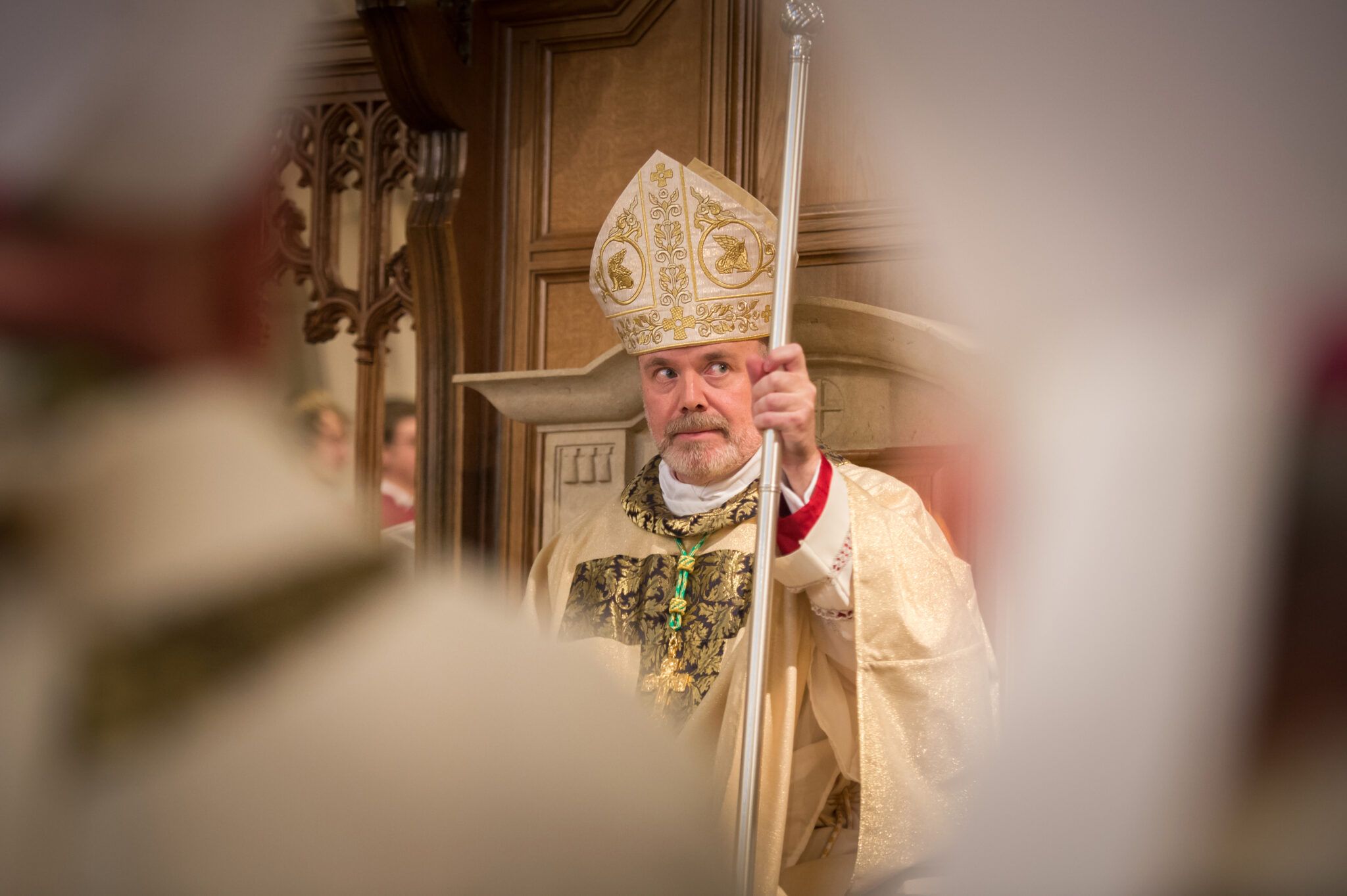The Bishop of Leeds has today urged the people of his diocese to ask their MPs to vote against assisted suicide, warning that assisted suicide can "never be autonomous in nature" because of the impact each individual death will have on the family, friends and healthcare professionals associated with it.
In the letter published in Leeds on 30th October, The Right Rev. Marcus Stock urged “the clergy, religious and lay faithful to unite in prayer and compassionate action to oppose the passage of this Bill and the legalisation of assisted suicide”.
“This we should do out of a concern for the good of every person in society, the protection of this good in law, and the spiritual and pastoral care of the sick and dying,” he added.
"There have been strong and emotive arguments put for and against such legislative changes in the past. This Bill may appear to promote personal autonomy but cannot negate the fact that an act of assisted suicide is never autonomous in nature; it will always have an impact upon others, an individual’s family, their friends, and indeed the healthcare professionals who will be expected actively and deliberately to assist them in ending their life."
On Friday 29th November, the Terminally Ill Adults (End of Life) Bill 2024-25 will be given its Second Reading in the House of Commons.
The bill tabled by the Labour MP Kim Leadbeater will, as its title states, “allow adults who are terminally ill, subject to safeguards and protections, to request and be provided with assistance to end their own life; and for connected purposes”.
It will be the first time MPs will have a free vote on assisted suicide since 2015 when a Bill introduced by Labour MP Rob Marris was rejected by 330 to 118.
“What the Bill before parliament will create is not the relief of that pain or suffering, but the legal right of someone who is terminally ill to intentionally commit suicide and to be assisted by others to do so,” the Bishop continued.
“The justification for this is that a person’s life has been judged by themselves, or been judged by others, to be not worth living.
“The Catholic Church affirms the intrinsic value and dignity of every human life from conception to natural death. Our faith teaches us that life is a sacred gift from God; that we are stewards, not owners, of our lives. This faith calls us to protect and care for the most vulnerable amongst us.”
Bishop Stock is the latest in a series of high-ranking prelates to urge Catholics to lobby their MPs to vote against the Bill.
In a pastoral letter earlier this month, Bishop Philip Egan of Portsmouth compared assisted suicide ideology to Nazism.
In a pastoral letter called <em>Thou Shalt Not Kill</em>, the Rt Rev. Philip Egan, said assisted suicide was gravely immoral, an offence against God, and “evil masquerading as kindness”.
The Bishop of Nottingham has also spoken out, issuing a warning that the proposal to legalise assisted suicide would undermine the foundation of the legal order in Britain if it becomes law and could also lead to “a gradual decline in funding for palliative care”.
Cardinal Vincent Nichols of Westminster, the president of the bishops’ conference, has also spoken out saying that assisted suicide would precipitate a “change from a duty to care to a duty to kill”.
Archbishop Mark O’Toole of Cardiff-Menevia, in his pastoral letter, also raised concerns over the real danger that assisted suicide would be impossible to control.
“The history of such legislation shows that once permission is given for one set of circumstances, it will soon be extended,” he said. “I urge you to write to, or email, your local MP, to express your concerns about the bill.”
Bishop Mark Davies of Shrewsbury said the Bill threatened “a momentous change to society in both its care and attitude to the sick and the aged”.
In a pastoral letter, he urged Catholics “not to delay” in writing to MPs to ask them to oppose the “dark and sinister path” towards a society in which the medical profession will be asked to assist in the killing of their patients.
“As we see populations ageing across western countries with a diminished number of younger people to support them, this is an especially dangerous moment for politicians to open the door to euthanasia: the medical killing of the sick, the disabled and the elderly,” he said.
“We already hear of a social duty to end our lives when we become a burden to others. This is not the kind of society in which we would wish to grow old or become vulnerable.”
The Bill seeks to permit terminally ill patients deemed to have less than a year to live to kill themselves with lethal drugs prescribed by their doctors.
Already, a group of more than 50 MPs say the safeguards are too tight and are pushing for broader access to assisted suicide, arguing that that it should be available to anyone arguing that they are suffering incurably.
Ahead of the general election in July, Sir Keir Starmer, the Prime Minister, promised Esther Rantzen, a celebrity TV presenter suffering from cancer, that an assisted suicide Bill would be brought forward.
At present the 1961 Suicide Act makes assisting a suicide punishable by up to 14 years in prison, though prosecutions and jail sentences are extremely rare.
<em>(Photo © Mazur/cbcew.org.uk)</em>
<strong><em><mark style="background-color:rgba(0, 0, 0, 0)" class="has-inline-color has-vivid-cyan-blue-color"><a href="https://catholicherald.co.uk/beware-assisted-suicide-its-all-about-the-money/">Related: Beware assisted suicide - it's all about the money</a></mark></em></strong>
<strong>Those who wish to contact their MP to express concerns about the new Bill may do so through an online tool provided by Right to Life UK <a href="https://righttolife.org.uk/ASthreat?utm_source=SUBSCRIPTION+LIST&utm_campaign=66c254348e-euthanasia-leadbetter_bill-20241016&utm_medium=email&utm_term=0_9297ae5f15-66c254348e-163651222"><mark style="background-color:rgba(0, 0, 0, 0)" class="has-inline-color has-vivid-cyan-blue-color">here</mark></a>. It takes less than a minute to do.</strong>



